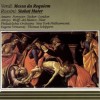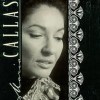| Voice/Instrument: |
Biography
Richard Tucker (August 28, 1913 – January 8, 1975) was a highly regarded American operatic tenor throughout his career, and is generally considered by vocal-music historians and critics as being the greatest American-born, American-trained tenor of the post-World War Two era.
Tucker was born Rivn (Rubin) Ticker in Brooklyn, New York, into a family of immigrants from Bessarabia (then a province in the Russian Empire). His father, Shmul (Sam) Ticker, and mother Fanya-Tsipa (Fanny) Ticker had already adopted the surname "Tucker" by the time their son entered first grade. His musical aptitude was discovered early, and was nurtured under the tutelage of Samuel Weisser at the Tifereth Israel synagogue in lower Manhattan. As a teenager, Tucker's interests alternated between athletics, at which he excelled during his high-school years, and singing for weddings and bar mitzvahs as a cantorial student. Eventually, he progressed from a part-time cantor at Temple Emanuel in Passaic, New Jersey, to full-time cantorships at Temple Adath Israel in the Bronx and, in June 1943, at the large and prestigious Brooklyn Jewish Center. Until then, Tucker's income derived mainly from his weekly commissions as a salesman for the Reliable Silk Company, in Manhattan's garment district.
On February 11, 1936, Tucker married Sara Perelmuth, the youngest child (and only daughter) of Levi and Anna Perelmuth, proprietors of the Grand Mansion, a kosher banquet hall in Manhattan's Lower East Side. At the time of Tucker's wedding to their daughter, the Perelmuths' musically-gifted eldest son, Yakob, had progressed from a part-time jazz violinist and lyric tenor vocalist to a national radio star who had already set his sights on an operatic career. Under the management of the legendary Sol Hurok, the eldest of the Perelmuth offspring, now renamed Jan Peerce, reached his goal when the general manager of the Metropolitan Opera Company, Edward Johnson, offered him a contract after an impressive audition. When Peerce made his much acclaimed debut at the Met on November 29, 1941, his sister and her new husband were living with Peerce's parents while Tucker was trying to make a success as the sole proprietor (and only employee) of a silk-lining sales business while also officiating at Temple Adath Israel in the Bronx.
Although Peerce remained skeptical of Tucker's ability and did not overtly encourage his operatic ambitions (which led, unfortunately, to a permanent rift between the two brothers-in-law and their families), Peerce did play a role in introducing Tucker to conductor and arranger Zavel Zilberts, who coached Tucker until he came to the attention of Paul Althouse, a notable tenor whose operatic career had begun during the last years of Enrico Caruso's long reign at the Met. Althouse became Tucker's only teacher. In a rare moment of the pupil disregarding the teacher's advice, Tucker entered the Metropolitan Opera "Auditions of the Air" in 1941, but did not win. When Met general manager Edward Johnson came unannounced to the Brooklyn Jewish Center to hear Tucker sing, however, Johnson offered the tenor another audition and soon awarded him a contract. On January 25, 1945, under the baton of Emil Cooper, Tucker made his debut as Enzo in La Gioconda. The debut, one of the most successful in the annals of the Met, foretold Tucker's 30-year career as the leading American tenor of the postwar era.
Richard Tucker as Ricardo in Giuseppe Verdis Un ballo in maschera (c.1950).
Two years after his Metropolitan debut, Tucker was invited to reprise his success in La Gioconda at the cavernous amphitheater in Verona, Italy, for which the retired tenor and Verona native, Giovanni Zenatello, had also engaged a young overweight, unknown Greek-American soprano named Maria Callas. Contemporary reviews of the 1947 Verona performances of La Gioconda verify that Tucker's success considerably surpassed Callas's, a fact overshadowed by the soprano's eventual worldwide acclaim. Two years later, in 1949, Tucker's rapidly ascending career was confirmed when Arturo Toscanini, the most celebrated Italian conductor of the twentieth century, engaged Tucker to sing the role of Radames for the NBC simulcasts of a complete performance of Aida opposite Herva Nelli in the title role, an event heard and seen on radio and television, and eventually released on LP, CD, VHS, and DVD. This was the first full opera performance ever broadcast on national television.
In the ensuing years, Tucker's ample lyric voice evolved into a lirico-spinto voice of near-dramatic proportions. If his signature stylistic devices, especially his affection for Italianate sobs, were not always lauded by the critics, the distinctive timbre of his ringing voice, his unfailingly secure technique, impeccable diction, and native-sounding pronunciation were universally acclaimed in every role he undertook. During an era in which a profusion of legendary tenors — including Jussi Björling, Giuseppe Di Stefano, and Mario del Monaco (and, eventually, Jan Peerce) — came and went during the years in which (Sir) Rudolf Bing led the Metropolitan, Tucker remained a dominant tenor and steadily took on new challenges. Although an indifferent actor throughout most of his career, Tucker made a strong dramatic impression with veteran critics when he reconceived the role of Canio in Pagliacci under the direction of Franco Zeffirelli in January 1970. The tenor was nearly 60 years old at the time.
Before and after each Metropolitan Opera season, Tucker appeared on concert stages through the U.S. In the late 1950s and early 1960s, his appearances in a series of "Puccini Night" open-air concerts at the landmark Lewisohn Stadium in New York City, under the direction of Alfredo Antonini, often attracted audiences of over 13,000 enthusiastic guests. Through his opera career, Tucker also officiated as a cantor during Rosh Hashana, Yom Kippur, and other sacred events in the Jewish liturgical calendar. A devoted but strict patriarch, Tucker oversaw the religious development of his three sons (Berel [Barry] Tucker, b. 1938; David N. Tucker, M.D., b. 1941; and Henry R. Tucker, Esq., b. 1946), and arranged for them to sing with him on a popular television program hosted by Sam Levenson in the early 1950s.
Tucker had a long-running contract with Columbia Records, and eventually recorded for RCA Victor as well. But measured against the sheer length of his career, Tucker's commercial recordings are proportionately sparse and inadequately convey the power and roundness of his voice, according to most of his artistic colleagues. Many of his commercial recordings, as well as private recordings of his concerts and broadcast performances, have been digitally remastered and are available in CD and online downloadable formats. A number of his national television appearances on "'The Voice of Firestone'" and "'The Bell Telephone Hour'" were preserved in kinescope and videotape form, and have been reissued in VHS and DVD format. Regrettably, a complete video performance of the tenor's searing portrayal of Canio in the Zeffirelli production of Pagliacci, which was to be paired with Cavalleria rusticana featuring Tucker's friend and tenor colleague Franco Corelli as Turiddu, was never telecast and has not been issued commercially, for legal reasons.
Although Tucker's well-crafted public image was that of a competitive, overwhelmingly self-confident performer, his offstage demeanor was that of an inherently private but unfailingly considerate man, especially where fans and colleagues were concerned. Never prone to looking back upon his career, Tucker always lived in the moment and maintained a boyish outlook on life. He also displayed a propensity for playing pranks on some of his fellow singers, often provoking a smile at some inappropriate moment in a performance. Once, during a broadcast of La forza del destino with baritone Robert Merrill, Tucker sneaked a nude photograph into a small trunk that Merrill opened onstage. In later years, Merrill described his tenor friend as "an original, right out of the pages of a Damon Runyon story."
Ironically, Tucker was touring with Merrill in a national series of joint concerts when, on January 8, 1975, he died of a heart attack while resting before an evening performance in Kalamazoo, Michigan. He is the only person whose funeral has been held on the stage of the Metropolitan Opera. In tribute to his legacy at the Met, the city of New York designated the park adjacent to Lincoln Center as Richard Tucker Square.
Shortly after his death, the Richard Tucker Music Foundation was established by his widow, sons, colleagues, and friends, "to perpetuate the memory of America's greatest tenor through projects in aid of gifted young singers." In the intervening decades, the Richard Tucker Foundation, whose annual televised concerts have been hosted by Luciano Pavarotti and other opera stars of the past and present, has consistently awarded the largest vocal-music grants and scholarships. Recipients include Renée Fleming, Deborah Voigt, Alessandra Marc, and other opera singers of international renown.





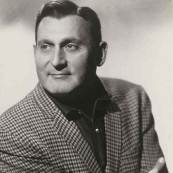
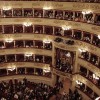
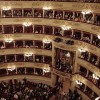
![Verdi - The Great Operas - 12 - La Forza del Destino (3CD) [Schippers, 1965]](http://static.classicalm.com/repository/composition-cover/small/44169-img1665712375414166.jpg)
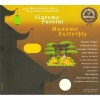
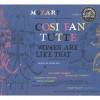
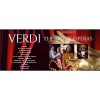
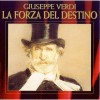
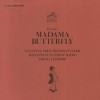
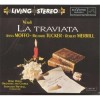
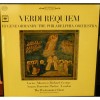
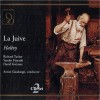
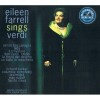
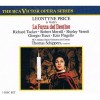
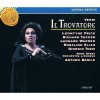
![Maria Callas - Verdi La forza del destino (1954) [Remastered 2014]](http://static.classicalm.com/repository/composition-cover/small/22932-img1423155541492780.jpg)
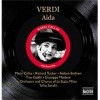
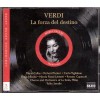
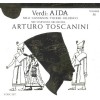
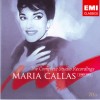
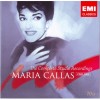
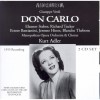
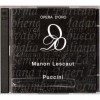
![Puccini - Madame Butterfly [Steber, Tucker, Valdengo - Max Rudolf, 1949]](http://static.classicalm.com/repository/composition-cover/small/16867-img1381948921299760.jpg)
